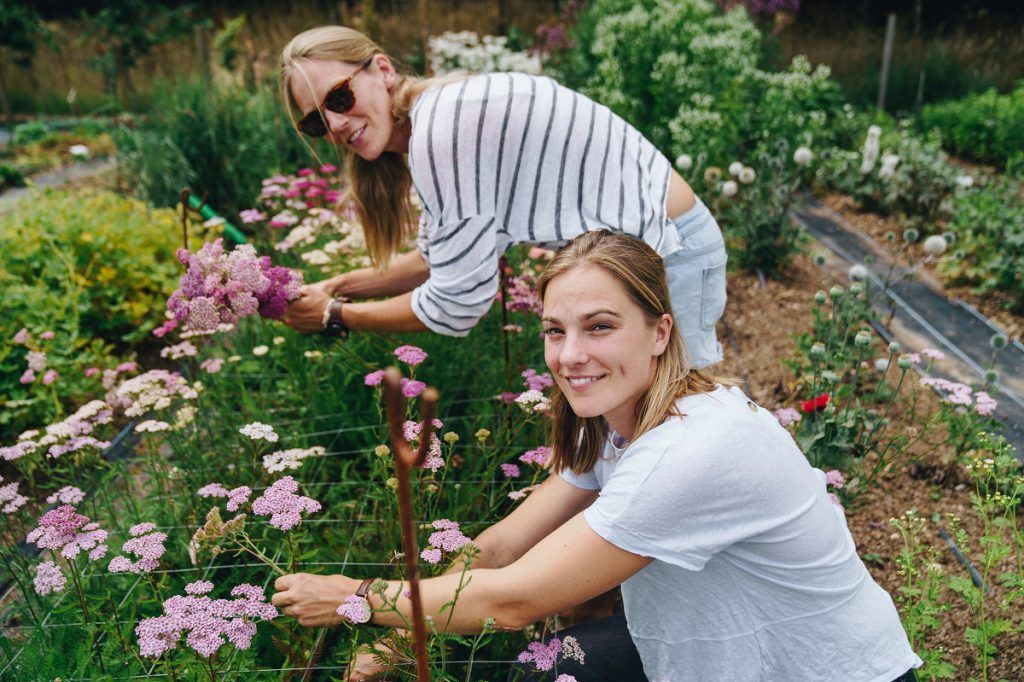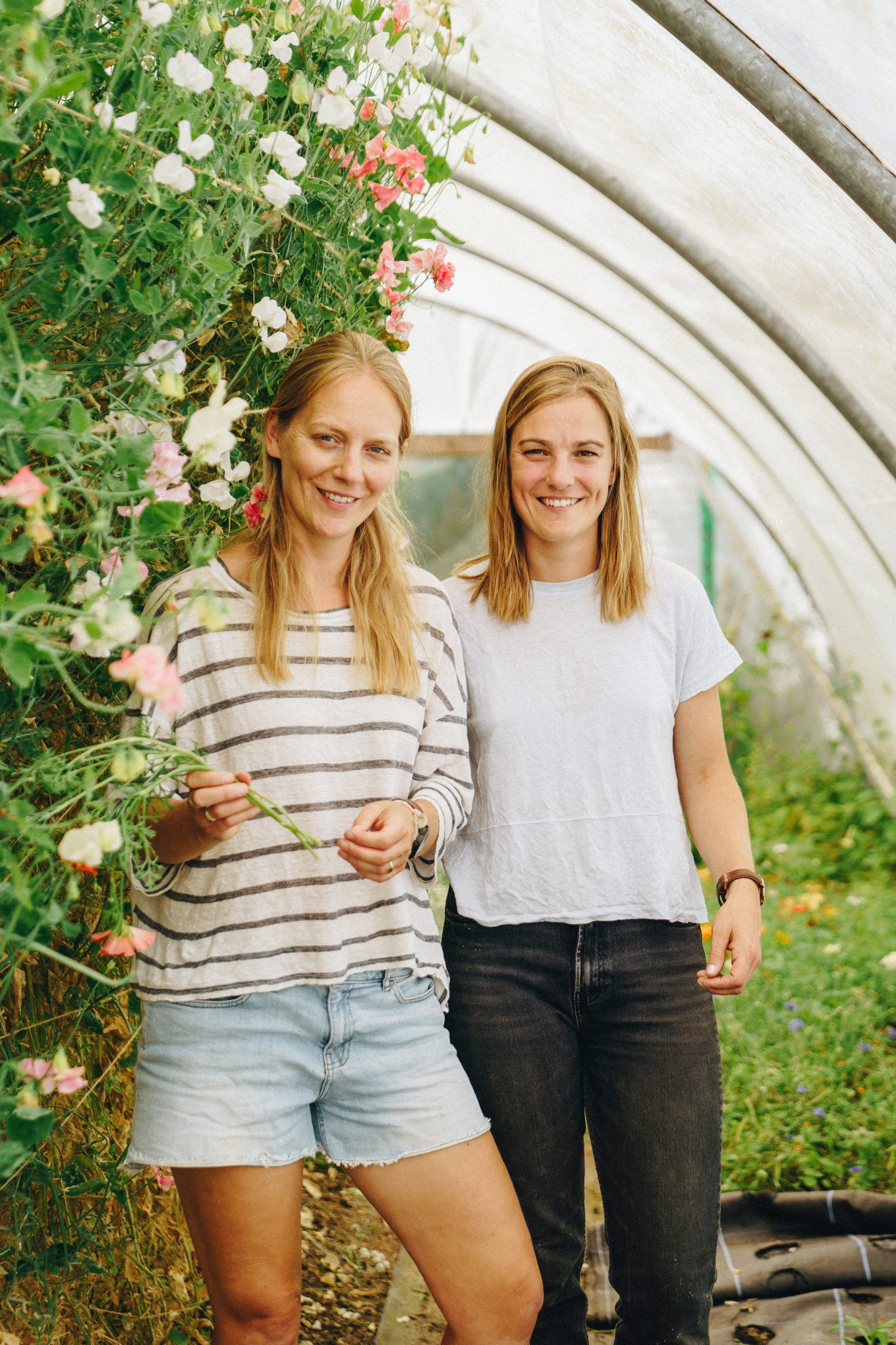
As British Flowers Week approaches, we had the pleasure of settling down with Becky and Sarah Kemlo, the sister duo behind Kemlo & Kemlo. Their flower farm and floristry business, based outside Lymington, in the New Forest, is renowned for its garden-grown wedding flowers and commitment to sustainability. Our conversation dipped into their intriguing journey to flower growing and the unique qualities of British-grown blooms.
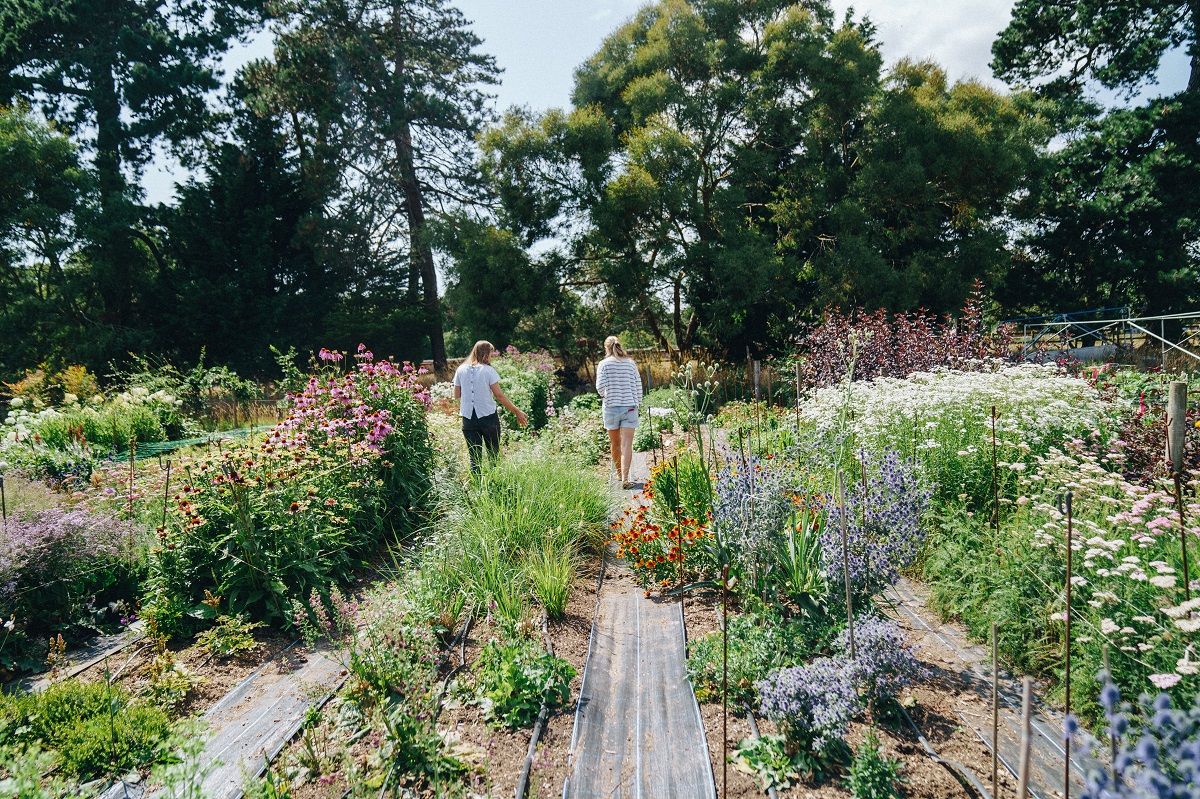
From neuroscience and super yachts to flower farming
Q: Both of you have experienced very different careers before embarking on this joint enterprise. Can you tell us a little bit about what motivated you to establish your flower farm and floral design business?
A: We both found ourselves in our late 20s/early 30s needing a change. I had spent my 20s in a lab doing neuroscience research, and Becky had been working abroad on luxury sailing yachts as crew and cook with her husband, looking for a move back to the UK. I’m not sure I really knew what I was looking for in a career move, but we both knew something had to change. Around that time, Becky was getting married and to save money, decided that we, her family, could arrange the flowers! We enjoyed it so much we joked that we should both pack in our jobs and become florists. Pretty soon, the idea took hold, and we found ourselves daydreaming of a future business together and spending our free time retraining.
Having worked as teenagers on an organic farm, we were already conscious of the impact of food miles and were vaguely aware of the fact that the vast majority of flowers sold in the UK are shipped in from Holland. It seemed nonsensical to us to work with imported flowers that had been sprayed with chemicals, shipped around, and wrapped in copious amounts of plastic, so the second idea, growing our own flowers, was born. The combination of flower farming and floristry just seemed to tick so many boxes. We knew we’d love growing and working outside, would relish doing something more creative, as well as enjoying the social aspect of working collaboratively with brides, grooms, and wedding planners on their weddings.
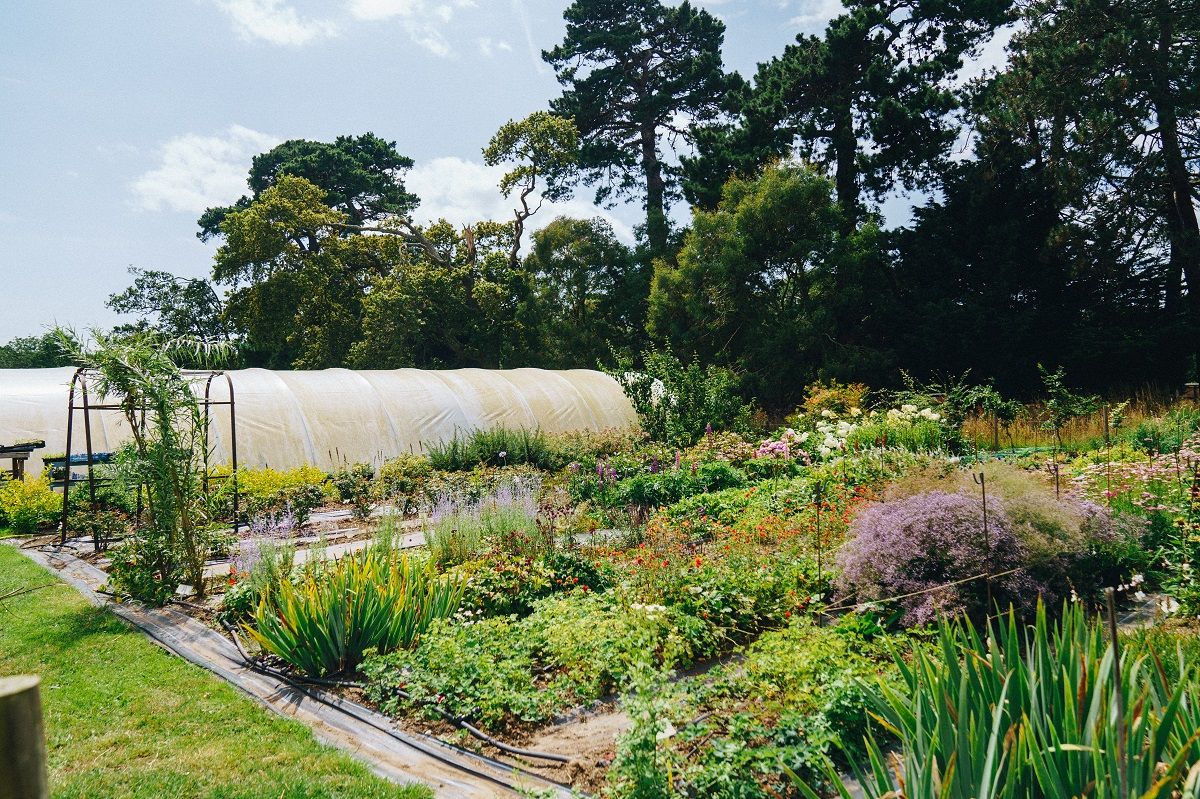
The dynamics of a family business
Q: Sofas & Stuff is very much a family-led business. Can you tell us a little about your experience of being part of a family business?
A: The biggest advantage is you know what you’re letting yourself in for! We already know each other so well, there aren’t too many surprises. There was no question that Becky would be absolutely dedicated to the project and throw everything into it. You can also trust family to be super honest with you in a way that only siblings are! The flip side is that the lines between work and social life can easily become blurred. That’s always the case with being self-employed but even more so with a family business. It’s all too easy to let shop talk infiltrate family time. Just occasionally, we remember to go out for lunch as sisters and not work partners!
Though officially, Kemlo and Kemlo is just us two sisters, in reality, we are lucky enough to have lots of willing volunteers in our family. Mum is our number one champion, and we’ve roped in aunts, brothers, sisters, in-laws, and partners into all sorts of jobs around the farm. We feel very strongly that it’s really important for children to see their parents doing a job they love, and although we haven’t yet trained up Becky’s 3-year-old to do the weeding, he loves coming up to see what’s going on, watch the tractor at work, and meet the animals on the farm. Hopefully, my newborn will be equally enthusiastic about spending time with us up in the field.
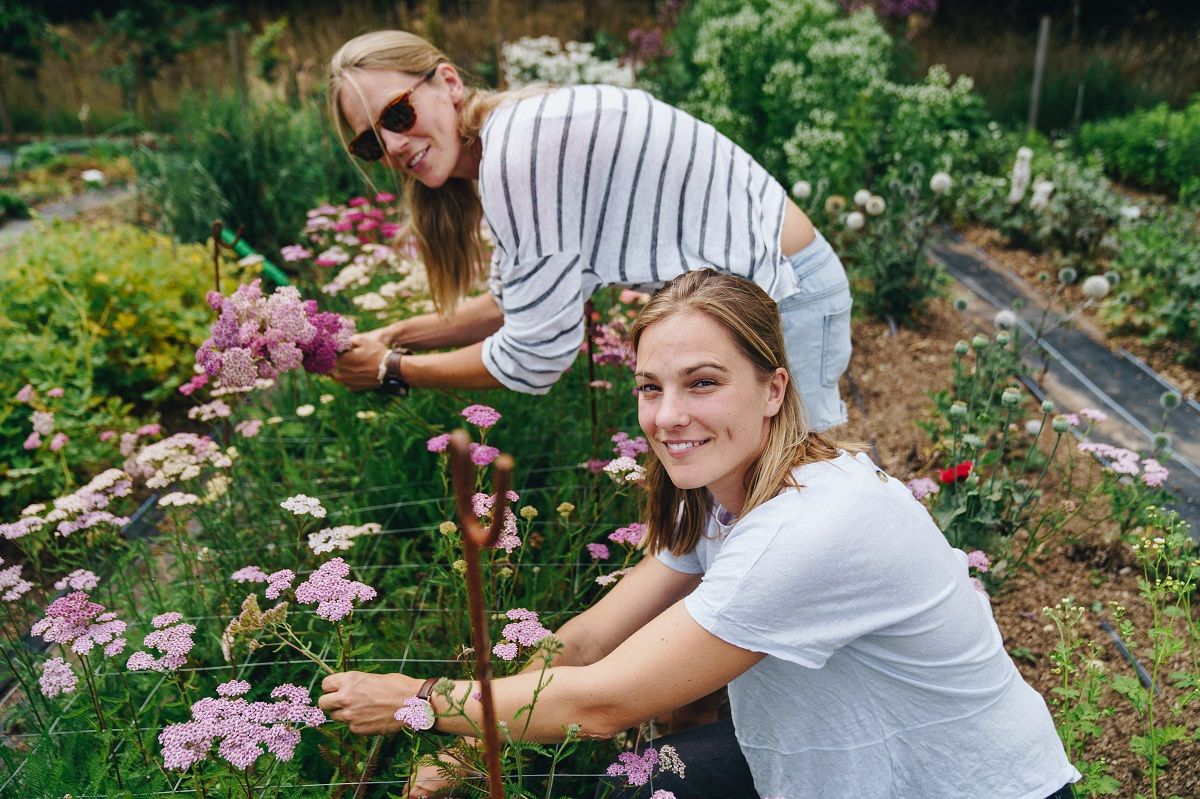
Igniting the passion for British cut flowers
Q: It’s British Flowers Week coming up. What makes British garden-grown flowers so special?
A: As well as the obvious environmental benefits of working with locally grown material, there’s also a remarkable stylistic difference. The established international flower markets have really nailed being able to produce sturdy, straight, strong, and uniform blooms, which is fantastic if you’re a large-scale, highly commercial business that values uniformity and predictability. British growers, on the other hand, are often growing slightly more unusual varieties. Often more dainty or individual in their form and, as a result, just that little bit more creatively inspiring. The result is a more natural and more free-flowing aesthetic which suits our wedding work perfectly.
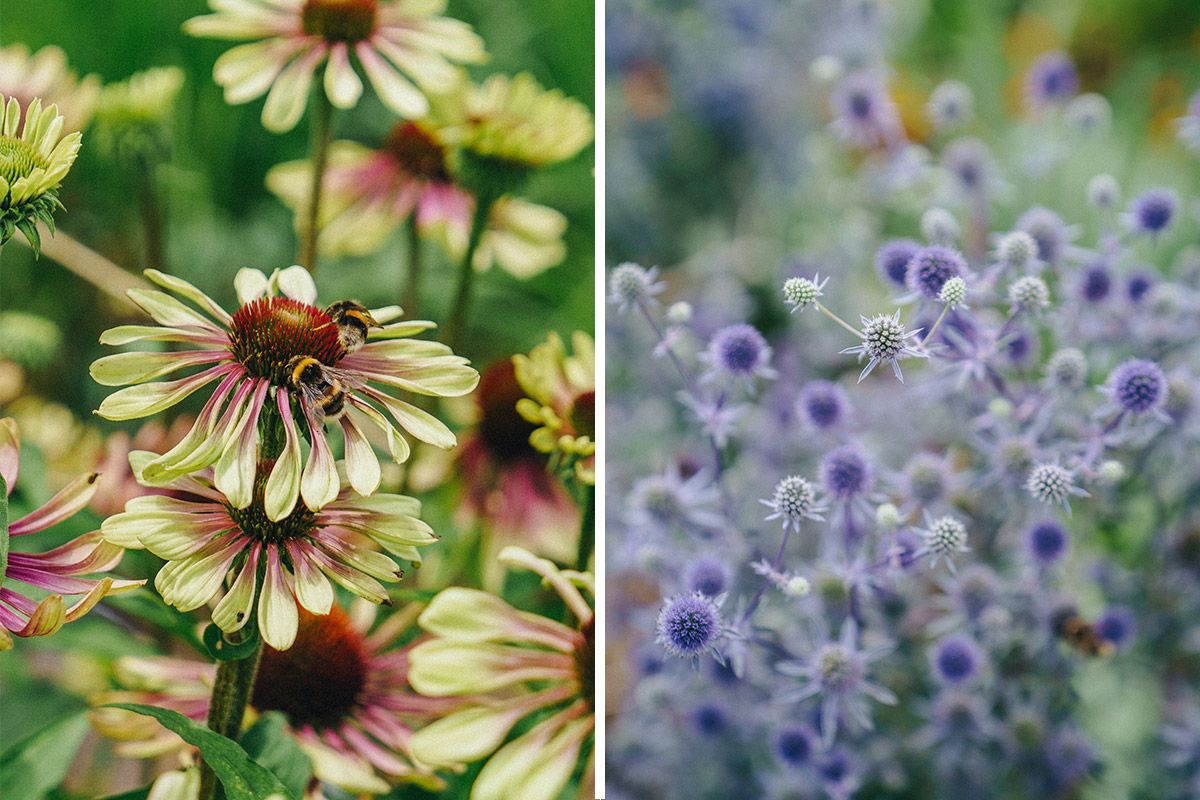
Q: Tell us about your floral style and how that influences your practices.
A: Our style is very much garden-inspired. Not so much rigid formal gardens nor outright wilderness, but the sort of gently tamed cottage gardens that are so quintessentially English. Think sweet peas and foxgloves and rambling roses left to grow slightly rampant over the old garden gate. Colour, form, texture, and scent are all considered in our designs as well as seasonality, allowing the flowers to speak for themselves. Just as our gardens change with the seasons, so do our floral arrangements.
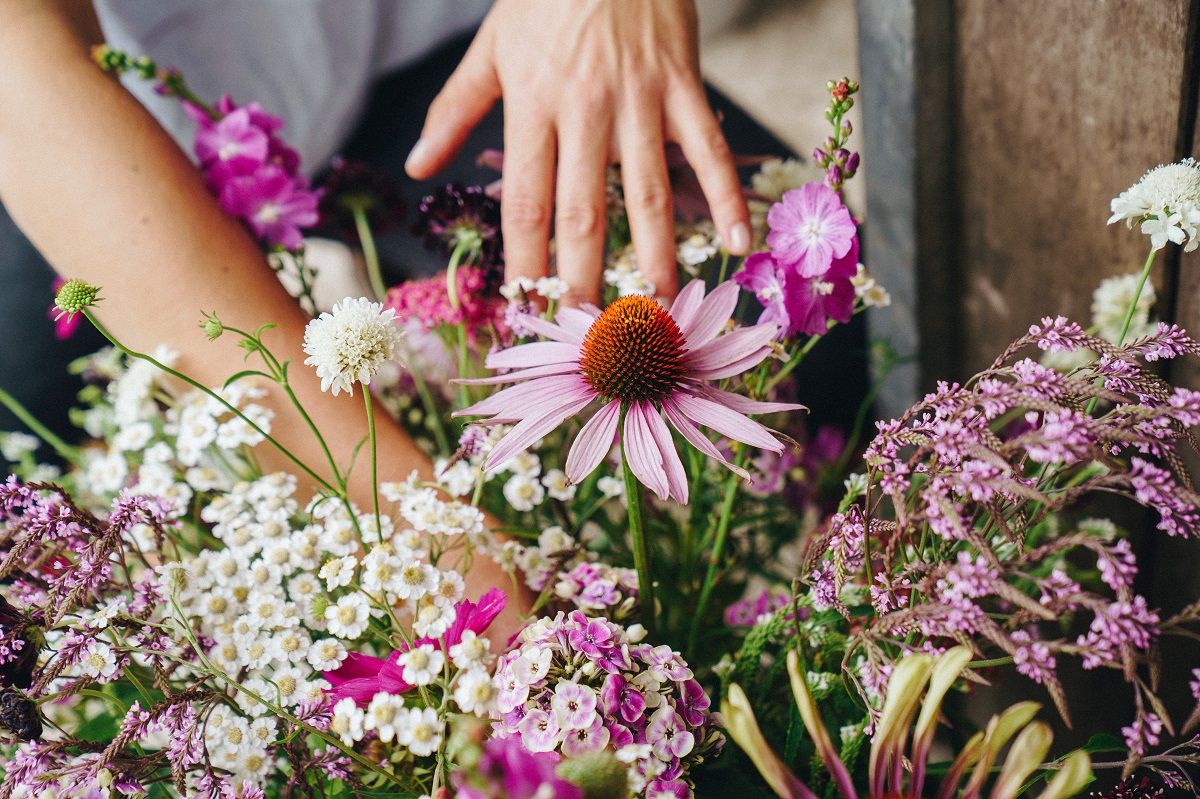
Q: What are your favourite flowers to grow for cutting?
A: You can’t beat sweet peas for their scent and their delicate beauty. The same goes for English garden roses, which are so very different from the roses you’d usually buy from a florist. But to be honest, as the season progresses, you find yourself having a new favourite every few weeks.
Tips for aspiring cut flower growers
Q: Can you share any tips for others who are looking to start a cut flower patch, or how we can incorporate some of your favourite cutting flowers into existing flower beds?
A: The most important thing to remember is that you will kill a few flowers! It’s inevitable! Don’t get too disheartened by the odd failure, just focus on the things that grow well in your patch. Everyone’s plot is a bit different, and different plants will thrive there. There are things that I’ve tried and failed to grow at the farm which will grow like weeds at home. Don’t be disheartened and adapt to the space you have.
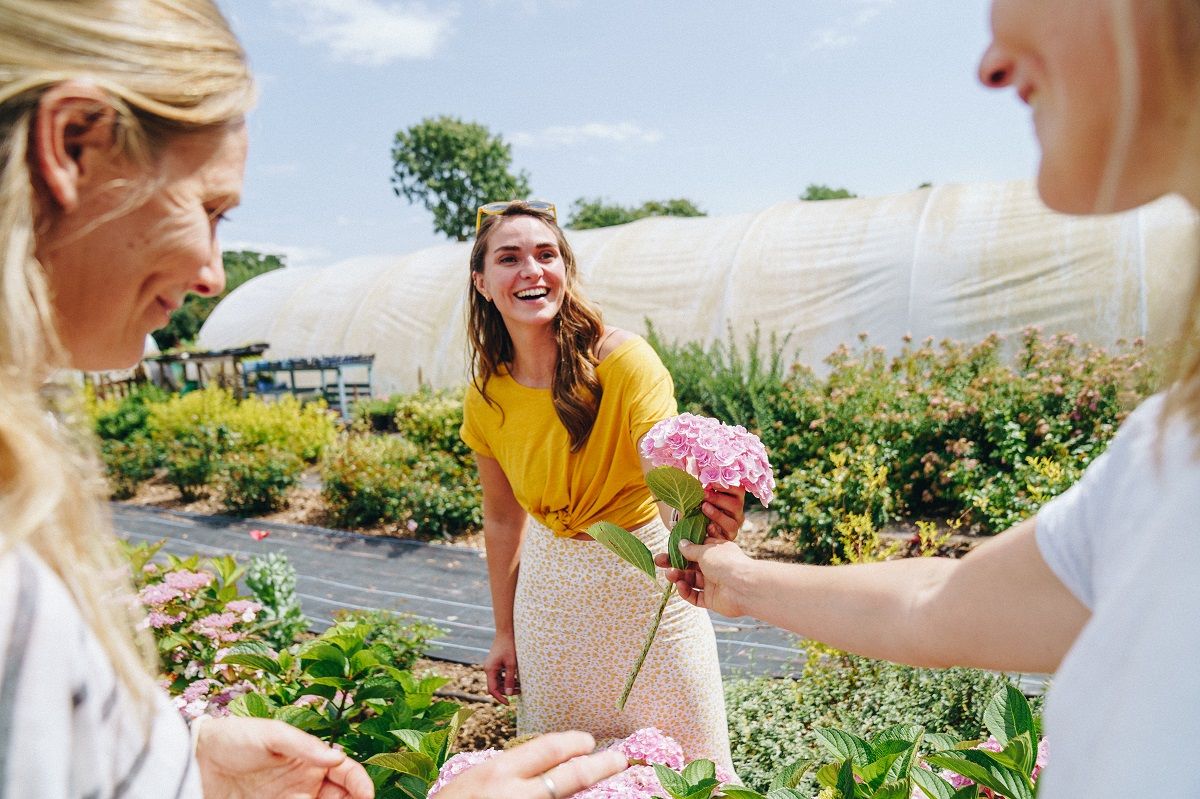
Bringing the outside In
Q: You both have very young families, so practical considerations are probably highest on your list of requirements when you think about your home and your interiors. But we’d love to know if you like to bring the outside into your homes in any way?
A: We do! As well as having leftover flowers on our kitchen tables, we also have dried flower wreaths or other dried flower creations hanging up in various places, and we’ve been experimenting with pressing flowers too. We’re also fortunate to live on the beautiful south coast and both have photographs and prints by local artists of the beautiful landscape we’re surrounded by. As we’ve all seen at RHS Chelsea Flower Show, house plants are still extremely popular, and the joy of them is that they are so easy to share by taking cuttings. We love giving and receiving them to expand our collections.
Q: We’ve just launched our third collaborative fabric collection with the RHS at RHS Chelsea Flower Show. We’d love to know which designs from these exclusive collections you could see in your home?
A: This is very pertinent as I am choosing curtain fabric at the moment! I love Gertrude Jekyll – Meadow Flower, and Becky has her eye on Gertrude Jekyll – Trailing Vine and also the Ferns Toile design from the RHS Botanicals collection. How lucky to be able to peruse the RHS archives for inspiration!
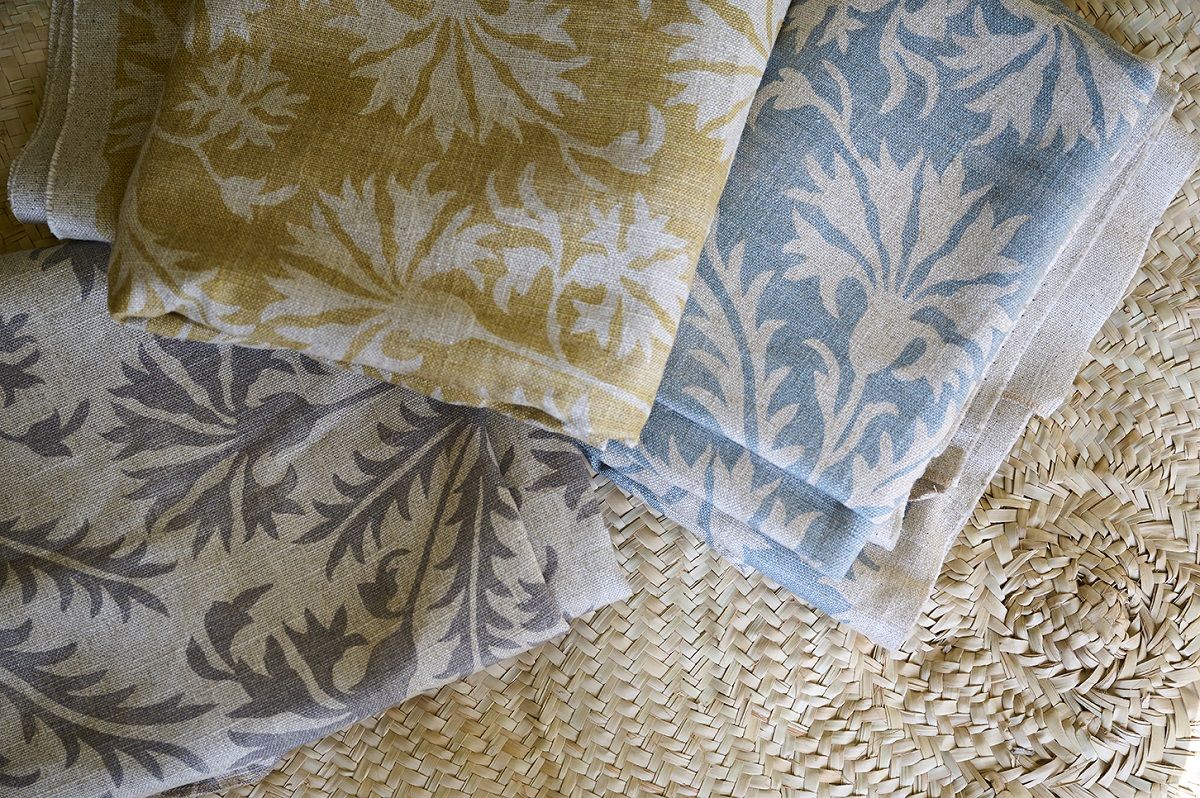
Find out more about Sarah and Becky’s flowers and floral design at Kemlo & Kemlo, or follow them on Instagram.
You can explore our all of our exclusive RHS fabrics, and order samples, here.

